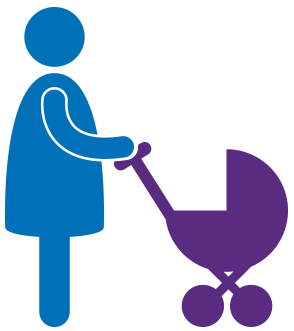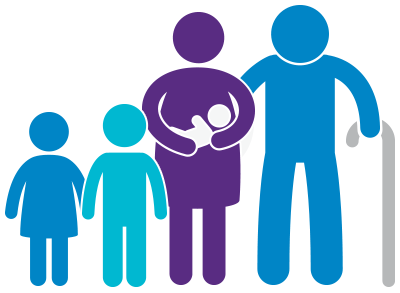
DCFSAs
Tax savings for dependent care
DCFSAs (also known as DCRAs) help pay for dependent care with tax-free dollars and can reduce your taxable income amount
The example scenario below provides estimated DCFSA savings based on a family health plan and a 20% combined federal and state tax rate. Amounts shown are the maximum allowed by the IRS. Your company or provider may allot a lower amount for your DCFSA plan.
child care expenses
$5000tax savings
$1000To qualify for a dependent care flexible spending account (DCFSA), dependent care must be essential for you and a spouse, if applicable, to work, look for work or attend school full-time.
To be considered qualified, dependents must meet one of the following criteria:

With a DCFSA, you are able to make pre-tax payroll contributions to pay for dependent care expenses.
1
The maximum annual DCFSA contribution allowed is $5,000 per household. Unlike medical flexible spending accounts, your annual DCFSA funds aren't available up front. Funds are only accessible as they are deposited with each payroll deduction.
2
Pay your dependent care costs out-of-pocket and get a receipt.
DCFSA funds do not roll over year after year. You must use your DCFSA dollars within the plan year or they will be forfeited.
3
You can submit for reimbursement through HealthEquity’s member portal or by using the DCFSA reimbursement form.
Recurring DCFSA claims can be scheduled for the duration of the plan year. For more information, please contact our expert friends at 866.346.5800.
Remember to save all receipts, which are required for reimbursement and validation of expenses.
HealthEquity offers an easy-to-use Documentation Library that allows you to upload and store receipts within the member portal.
*See the complete regulations and list of qualified and non-qualified medical expenses in IRS Publication 503 - Child and Dependent Care Expenses.
Nothing in this communication is intended as legal, tax, financial, medical or marital advice. Always consult a professional when making life changing decisions. In addition to restrictions imposed by law, your employer may limit what expenses are eligible for reimbursements. It is the members' responsibility to ensure eligibility requirements as well as if they are eligible for the plan and expenses submitted.
TOP